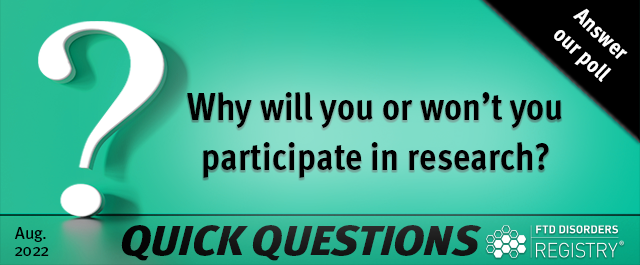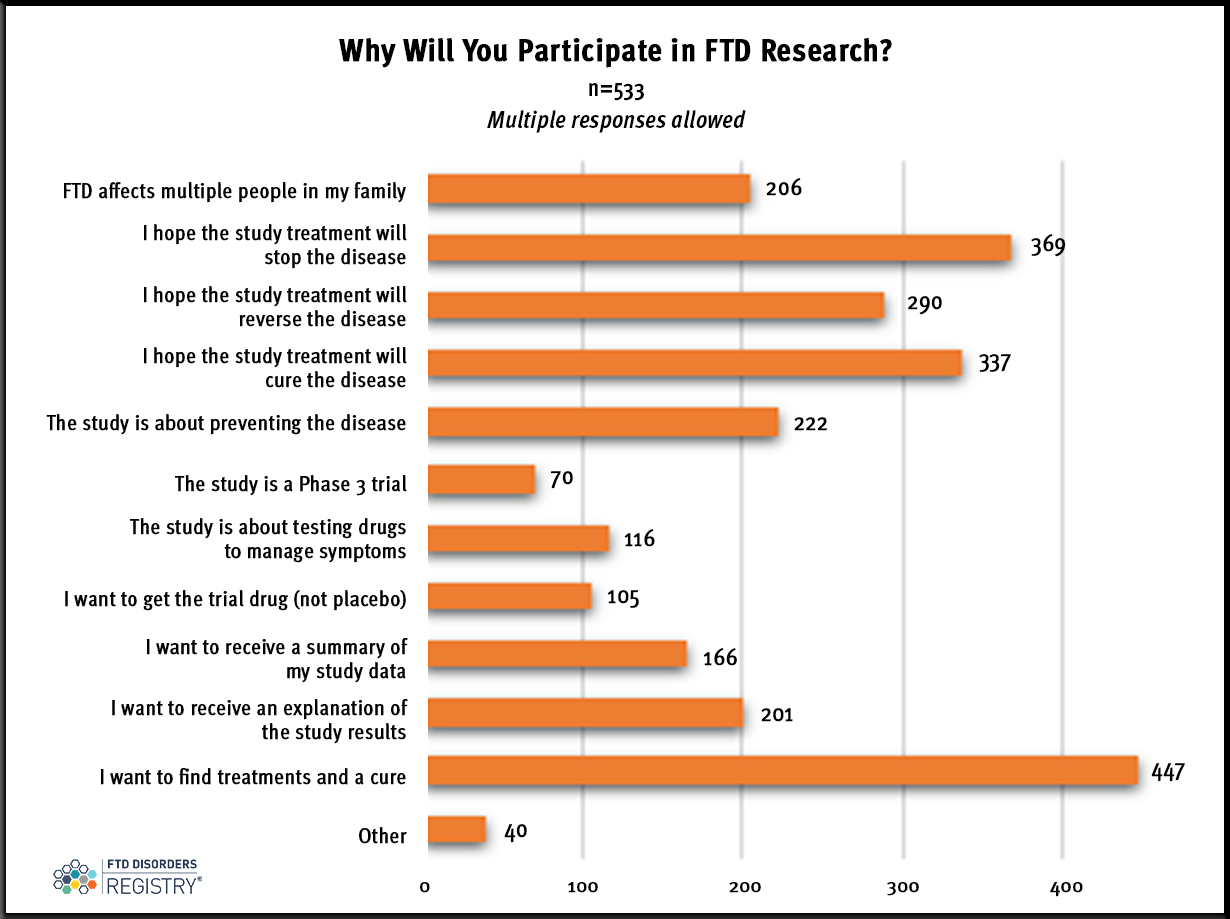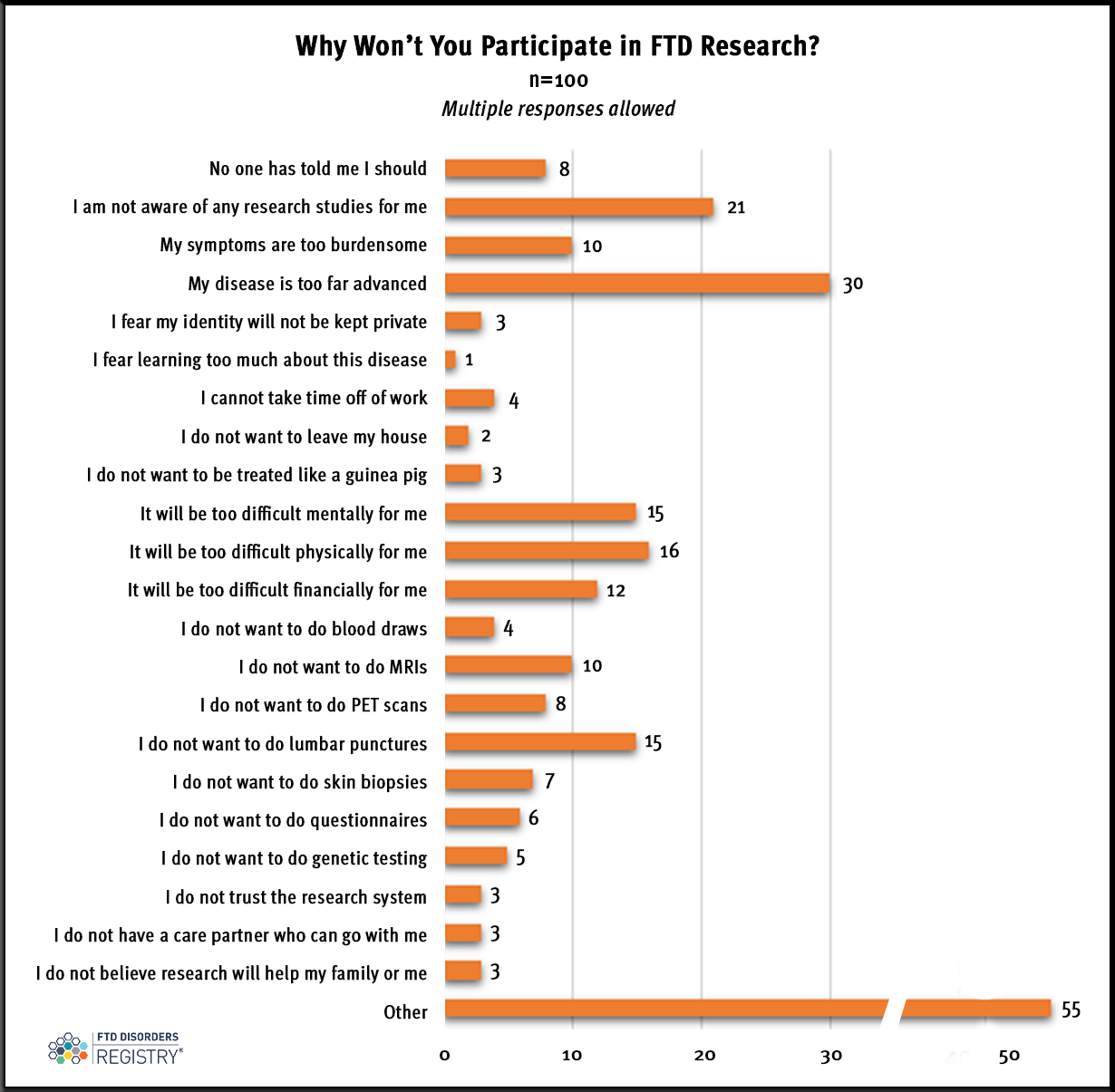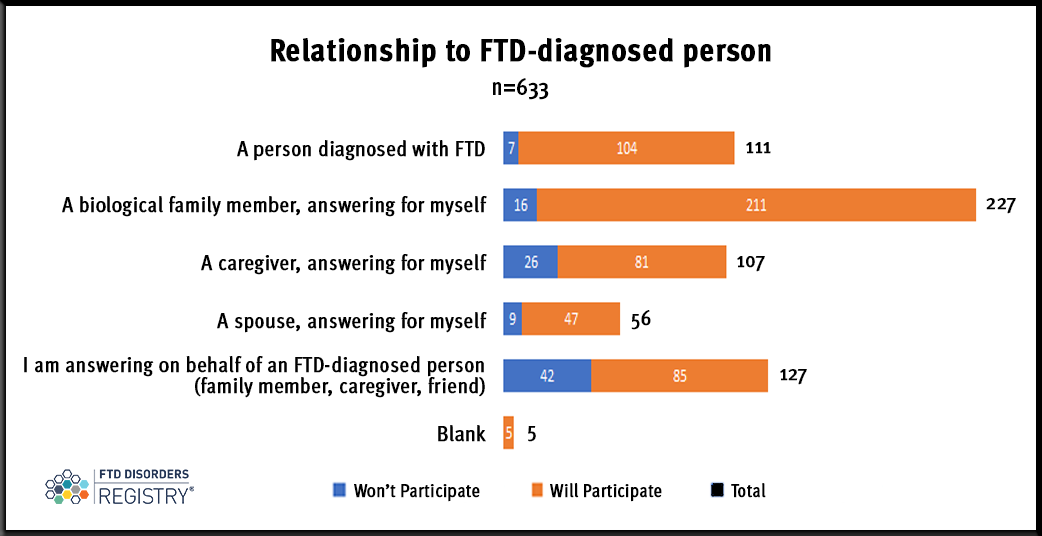PRESS & NEWS
Quick Question August 2022 Results: Why will you or won’t you participate in FTD research?

According to the August 2022 Quick Questions survey, people participate in FTD research because they want to find treatments and a cure for FTD.
According to the August 2022 Quick Questions survey, the No. 1 reason people participate in FTD research is because they want to find treatments and a cure for frontotemporal degeneration (FTD).
The question was answered by 633 people. There were 533 people who shared reasons they will participate in FTD research, and 100 people told us why they would not participate.
People were not asked if they had enrolled in a study. However, several indicated through their write-in answers that they were current or past research participants.
Geographic breakdown
Those who answered the August question represented 20 countries. Some indicated that because they lived outside of North America they could not qualify for studies, while others indicated that there were no studies for their specific diagnosis in the country in which they live.
The top four countries represented were:
- 552 United States
- 45 Canada
- 12 Australia
- 8 England
Of all respondents, 36% (226) live in these seven U.S. states:
- 52 California
- 34 Texas
- 33 Illinois
- 31 Minnesota
- 27 New York
- 25 New Jersey
- 24 Washington
RESULTS
Those who indicated the reasons they would participate in research greatly outnumber those who noted they will not participate.
The following charts and lists are based on a total of 633 submissions.
Responses from people willing to participate in research
Those who selected “Other” for why they would participate in FTD research were given the option to write in their reasons. Their motivations for saying “Yes” fell into these categories:
- To expand the knowledge of the science
- To support the scientific process
- To know as much as possible about FTD
- To change the course of the disease
- To learn if it may affect my children
- To monitor symptoms
- To track disease progression
- As long as medical insurance can still be purchased
- If the study focuses on a specific gene
- If someone asks me

Responses from people who will not participate in research
The greatest reason that prevents people from enrolling in FTD research is when the disease has progressed too far. In addition, there were several other issues people selected that made trial participation too difficult for them.
Those who selected “Other” were given the option to write in their reasons for not participating in research. Many of their reasons could be grouped into these categories:
- FTD-diagnosed loved one has died
- Lack of time
- Underlying medical issues
- Not living in North America
- Diagnosis no longer FTD

Identify yourself results:
Research studies now exist for FTD-diagnosed persons, biological family members of persons diagnosed with FTD, and for caregivers.
People were asked to indicate their relationship to the FTD-diagnosed person when answering the poll and whether they were answering for themselves or their diagnosed loved one.
Those who answered for themselves were invited to submit a separate response for an FTD-diagnosed person, and people who answered on behalf of a diagnosed person were encouraged to submit another response on behalf of themselves.
Here is the breakdown of those who answered the August question:
- 17% A person diagnosed with FTD
- 36% A biological family member
- 9% A caregiver, answering for myself
- 17% A spouse, answering for myself
- 20% Answering on behalf of an FTD-diagnosed person (family member, caregiver, friend)
- 1% Blank

Together we can find a cure for ftd
The FTD Disorders Registry is a powerful tool in the movement to create therapies and find a cure. Together we can help change the course of the disease and put an end to FTD.
Your privacy is important! We promise to protect it. We will not share your contact information.



